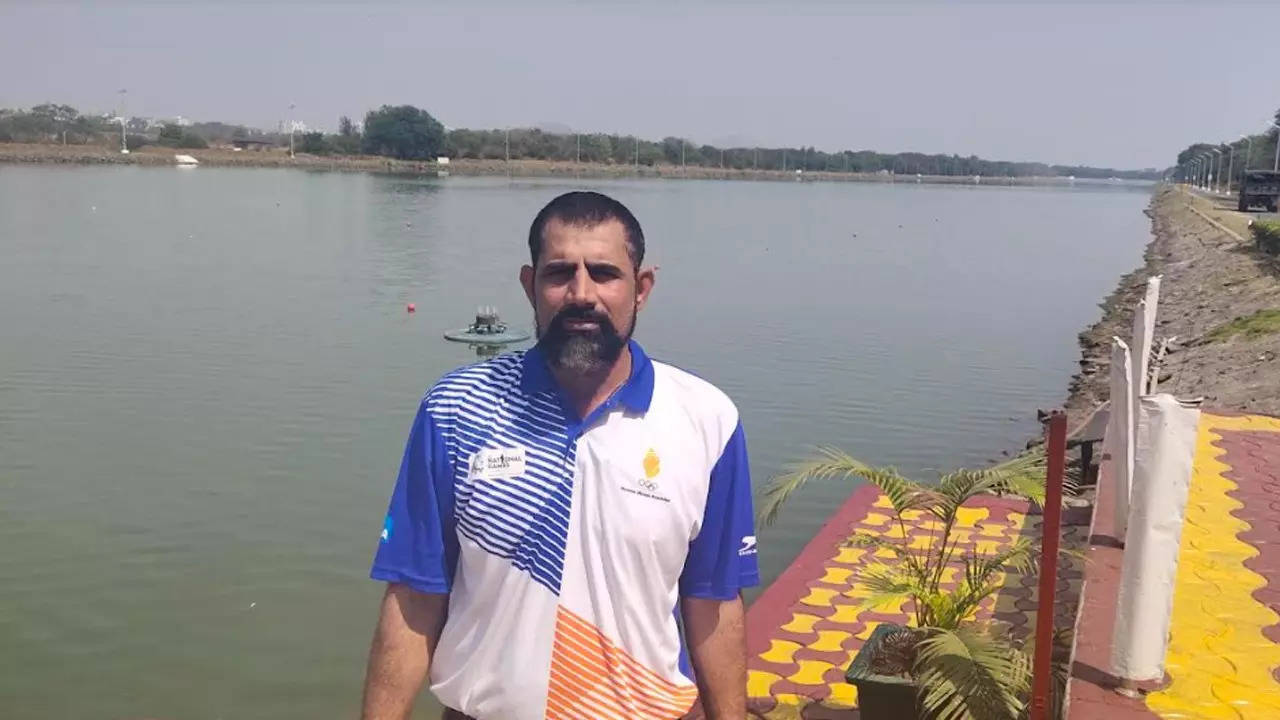
PUNE: Chand Chahal wants to see a rower from his academy in Jind, Haryana, stand on the podium at the Asian Games in 2030. Unwittingly, in the process, the 40-year-old former oarsman might also be creating a sporting revolution in his home state.
For, Jind, like most towns in the northern state, is famous for akhadas. Chahal's late father Chotu Ram himself was a national level wrestler, as well as his elder brother Netrapal. Not to forget his seven-year-old son.
"People of Haryana don't know as much about rowing as they do about wrestling. My own village has three akhadas," said Chahal on the sidelines of the National rowing championships in Pune on Wednesday.
But, since its inception in 2018, the facility, named after Chahal's father, and its trainees have come leaps and bounds.
In 2022, his rowers from various age groups won more than 40 medals at national level competitions - 13 each at Khelo India Youth Games, Junior and Sub-Junior national championships, and five each at National Games and Senior National championships.
Eight of them were gold.
"I started with near and dear ones, with a ten-year plan to have one rower on the podium at the Asian Games. For the 2023 Games, six of our students have been selected for national camp," said Chahal, who won the national gold in single scull three times and represented India at the 2009 World Championships in Poland.
It has not been easy one bit. Just setting up the academy cost him about Rs. 1.2 crore -- which he raised through loans against land, his retirement benefits, and significant help from his mother.
"With guidance from Ismail (Baig) sir (the national head coach and Dronacharya awardee), I was able to buy boats, ergometres and other equipment. But the biggest problem was that there is not enough water in Haryana for a rowing course," said Chahal, a national level volleyball player who took up rowing after joining the army with 22 Guards regiment in 2002.
Fortunately, a canal meant for irrigation came to his rescue. With Yamuna as its source, the canal maintains enough water flow through the year, but remains open only for 15 days in a month at a stretch.
"When the canal is closed, we make the students work on the land. We use the ergometres, the gym and other facilities," said Chahal, who completed a strength and conditioning course from the Army Sports Institute after his competitive days before turning to coaching.
What Haryana lacked, the state more than makes up for Chahl through its sporting culture and natural resources.
"When compared to all other private (rowing) academies, I can say that our diet is the best. Our villages have good farming, so the vegetables come straight from the fields. The milk and curd is the purest," he said.
And wrestling helps, too.
"Rowing needs power, which is why not many people take it up. But I keep talking to the wrestling and other coaches, maybe some of the kids are not making progress. They can be a good talent for our academy."
He applies his knowledge from his own competing days and certification programme to select kids and hone their talent.
He looks at the prospective kids' grandparents and parents to see if they have the right height and arm span. Once selected, he exposes them to a variety of sports including football, rugby and, yes, wrestling.
The Covid interrupted his academy's development but with his wards winning medals last year, it has made the state government take notice.
With his academy all set to come under the ambit of Haryana's sports programme from April, Chahal will be able to pay for two coaches and his trainees each will receive a monthly stipend of Rs. 1,500 (for those aged below 15) and Rs. 2,000 (for those above 15).
"It is a start. It will at least take care of the children's diet and will also attract other kids," he said.
"Hopefully, it will also make the Sports Authority of India to come forward and support us. Our academy fulfils all the criteria."







